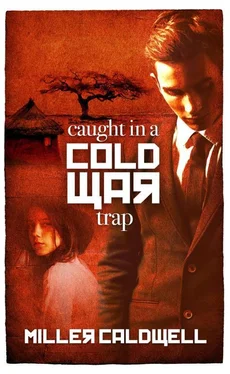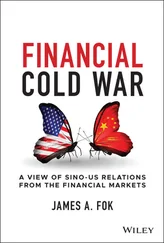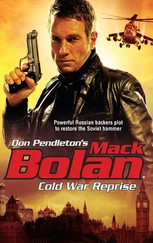‘I’ll leave you to get through the correspondence. Some might be addressed to me. Open them anyway and take what action you need to. Peace will keep you right.’ As he spoke he turned towards the door. He did not want any more conversation. I let him go.
That was Igor’s final instruction. I looked at my watch. It was fast approaching his appointed hour with Bacchus.
I sat down and picked up the letters. I flipped through them. There were seven in total. I dealt with the locally stamped ones first.
The first was from the machine operator in the factory. He was asking if his son could join the firm and replace him one day when he retired or died. I placed the letter aside. I was not sure what vacancy the workforce could offer.
The second was a letter from a local Akpeteshie seller. It was an invoice for Igor—to pay 137 cedis. I had no idea how much ‘kill me quick’ alcohol that would be. It seemed a lot.
The next two letters were from the airport. They gave the dates of the flight, the flight numbers and the destinations of the next two batches of boxes of oil.
The fifth letter was a welcome card. It was from Peace. I went to see her to thank her but she was not there. Gone for lunch I presumed.
‘Looking for Peace,’ I heard a man say as he saw me return to my room.
‘Yes, I was.’
‘Then you have met her absence.’
I smiled at the antiquated manner in which he spoke. ‘I’ll see her later. I’m Robert Harvie, the new manager. And you are?’
‘Sammy, the maintenance man.’
‘Things look very shipshape to me,’ I said to please him.
‘Shipshape?’ he asked bewildered.
‘Everything seems in order,’ I said turning back to my room having learnt an important lesson.
The last two letters were the most interesting. One had the Russian Embassy logo on the back with an Accra postmark on the front while the other was from London. I opened the latter first. It was from Vasily Chazov. He welcomed me to Tamale and showed his confidence in me. He looked forward to seeing me before too long. That was a tantalising thought. Did it mean next week, next month or when? He also made reference to work, not related to the peanut factory. It was not specific but implied I’d be away from the factory from time to time and that Igor Utechin would understand.
I read and re-read the letter. It seemed Igor had a more significant part to play than I had previously given him credit.
The last letter was from the Russian Embassy in Accra. Once more a welcome note. Everyone seemed to be welcoming me. They also invited me to their embassy and told me a formal invitation would follow soon.
I poured a glass of cold water from the fridge as a knock on the door was heard. I shouted, ‘come in,’ and a boy appeared with a tray. On it was a bowl of soup and some small bags of roasted nuts. A bunch of bananas were tied to his waist. He also had a bunch of leaves. ‘The leaves, are they to eat?’
His response was to laugh. He took from his tray what looked like soggy rice and made it into a ball. He placed it on a leaf and served it to me.
‘Kenkey,’ he said. ‘It be fermented cassava. It come wif dey stew, snail stew. It be good.’
I think he saw my look—should I, or should I not?
‘Make you go try dis.’
I nodded.
‘So, the kenkey, soup, nuts and banana, how much?’
He gave a look which suggested he knew how much he could get from the white man. ‘That be two cedis.’
I gave him three cedis, thanked him for coming and I sat down at my desk to eat. The soup was tasty but the kenkey was a sourdough which I could not swallow with any enjoyment. The snails were surprisingly good if a bit chewy. I had no trouble eating the groundnuts with banana. They went down together well.
When Peace returned she knocked on the door and entered. She smiled. She found me eating. ‘It’s an acquired taste. Most Europeans don’t take to kenkey at first. They prefer fufu. You should try some of dat,’ she said lifting the tray. ‘Em, how much did you pay for it?’
‘You mean everything?’
‘Yes, your lunch. The boy would have sold it to you.’
‘Yes, he did. Two cedis and a cedi tip I gave him.’
‘Two cedis with a cedi dash?’ she said raising her voice.
‘That’s not too much was it?’ I asked like an errant schoolboy.
‘Two cedis is a week’s pay for some.’
‘Oh, then I won’t give him that again.’
‘No, no more than 50 pesewa for that meal.’ She smiled. She knew I was still on the learning curve.
‘Fufu? you said.’
‘Yes, it come in different ways. Cassava fufu; plantain fufu, a mixture; I tink you will like dat best. We will be having some at our house dis evening. Come and join us, do please.’
With nothing to do that evening, it was a pleasant thought and I had no hesitation in accepting her kind invitation.
‘Will I find your home easily?’
She laughed. ‘My husband will pick you up.’
Chapter 8
Ghanaian Hospitality
A large maroon Volvo arrived at my home promptly at 7 p.m. Eric Assare got out of the back seat and shook my hand. He was lean, wearing a short-sleeved blue shirt and grey charcoal trousers. Around his neck, his tie looked like an old school tie. His black hair had gone grey just above both of his ears. He looked around fifty years of age, but that was just a guess.
‘I’m very pleased to meet you Mr Harvie. Peace told me you were a fine young man.’ He spoke with a refined accent.
‘Thank you. She is a very pleasant lady indeed,’ I replied as he opened the back door of the car for me to enter. He came round the other side and sat in the back with me. His driver made sure we were seated comfortably before setting off.
‘I can’t say I’m often in the back seat of a car,’ I said but he smiled and tapped his hand on my knee.
‘Better not to say that in Ghana. It’s the car owner who sits in the back. You are a mere passenger if you sit in the front.’
I nodded slightly. ‘I have a lot to learn about Ghanaian life. Are you a native of Tamale?’ I asked.
‘No, I’m Ashanti, from further south.’
I felt I needed to probe more deeply. ‘So, it was work that brought you here,’ I said in a matter of fact way.
‘There are too many doctors in Kumasi. Anyway, after graduating from King’s College Hospital in London I went to the School of Tropical Medicine. I researched West African ailments and traditional medicine. Tamale is more rural. More interesting cases here for me to cure.’
‘It’s good to hear a doctor say the word cure.’
He nodded. ‘In England, they taught me the British way of medicine. I include the African methods too. The inner skin of the pawpaw is an antiseptic, for example. It’s used for childhood falls and scrapes as well as motor accidents. Then we have a host of herbal medicine—all of which have their place.’
‘It seems you must be able to cure most people then.’
He wiped his brow with a white handkerchief. ‘Not so, far from it. There are some illnesses which can’t be treated—like severe alcoholism when the patient does not want or can’t change his habit.’
‘My boss is a bit like that.’
‘So Peace tells me. Of course he is also my patient.’
‘I see. So, if your list is not too large, perhaps I could join your practice?’
‘No problem Mr Harvie. I’ll get you registered tomorrow,’ he said as the car pulled up before a two storey dwelling with a large garden of flowers at the front.
‘What a beautiful garden you have,’ I said. It was well lit and colourful.
‘I can’t show it to you after dark.’
‘Why not, is it a superstition?’
He raised his hand and pointed at the back of the garden.
Читать дальше












